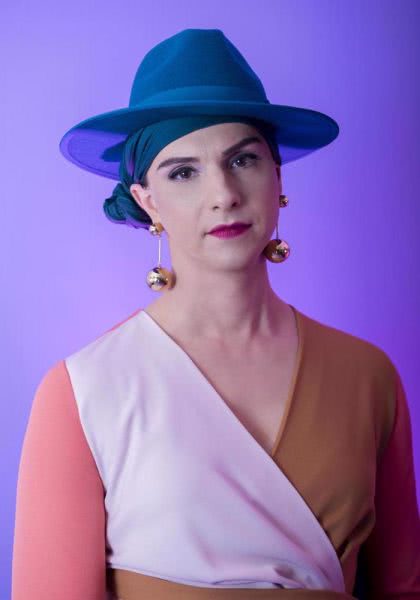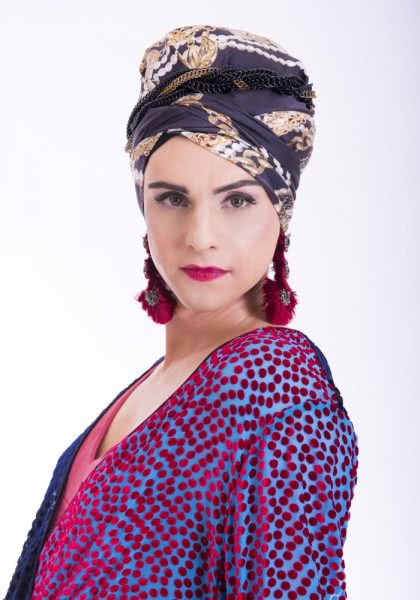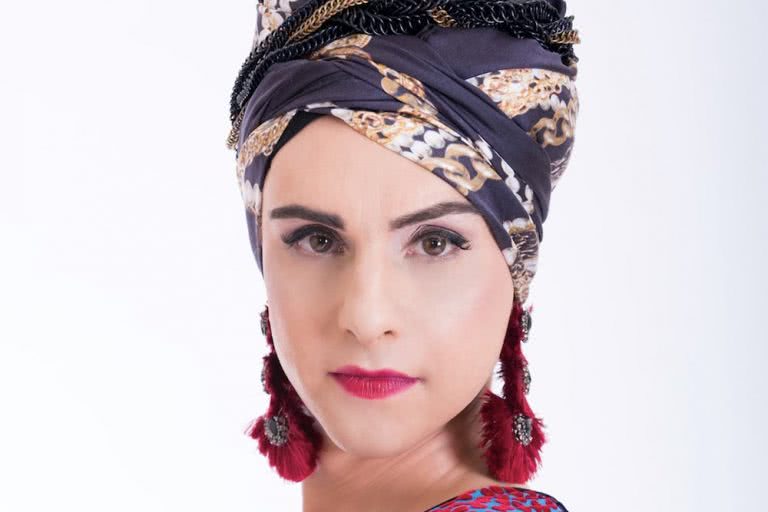In ten, 20 or 50 years, when music historians sit down to write a history of electronic music, Gavin Rayna Russom will be at the top of the list of the most influential artists of the genre.
You might recognise Russom as the synthesist in LCD Soundsystem, who she has toured with since 2010. She is also known for her work in creating custom analogue synthesisers for DFA Records, her collaborations with Delia Gonzales and Crystal Ark, her solo music under moniker Black Meteoric Star, and her fine art practice. She keeps busy.
On top of that, almost exactly halfway into LCD Soundsystem’s world tour promoting their universally acclaimed album American Dream (with banging track ‘Tonite’ marking the group’s first Grammy win), Russom came out as a transgender woman.

Coming out
In 2017, Russom came out as transgender. Halfway through a two-and-a-half year tour with one of the biggest bands on the planet may seem like a bold time to come out. But Russom is not one to do things in a conventional manner.
After several attempts to make her trans identity known in her 43 years on the planet, Russom finally felt that she was in a stable enough moment in her life to make the wider world aware of her transition.
Her coming out was met with broad support, and she has noted that those close to her were not particularly surprised. Indeed, retrospectively, the concepts of fluidity, femininity and exploration run through her entire body of work. And in fact, Russom has been revisiting and reviewing her old work by reissuing old recordings and posting previous work on her SoundCloud.
Russom began DJing in her high school cafeteria, experimenting with drone and feedback and playing in psychedelic noise bands. As the years went on, she studied composition at Bard with Benjamin Boretz (minoring in religion). She moved to New York and played in punk and hardcore bands, performed in nightclubs and underground DIY venues, and became one of the most influential musicians in her genre with LCD Soundsystem, as well as in her own right.
Early days
Russom grew up in Providence, Rhode Island, but moved to New York, and later, Berlin. New York and Berlin inspired and challenged Russom, but in Providence, it was her father’s love of jazz and blues that led her to her musical aesthetic.
Growing up with jazz sparked an interest in improvisation. That, coupled with discovering music from other cultures and discussing music composition with her cousin, Mike Kelley (also known as Kelley Polar, the musician), led to the idea to form an improvisational band. At the same time, she was beginning to realise there was “something going on” with her in relation to her gender.
The improvisational band kickstarted her interest in musical improvisation. It was there that she realised that anything can happen when you don’t start with pre-conceived ideas. It also made her wary of music stagnating.
Russom credits this experience as the time her lifelong compositional aesthetic was formed, jumpstarting her fascination with shaping and sculpting sound and her concern with creating music that is both exploratory but that also moves forward.

The power of synthesisers
Russom is perhaps best known for her work with synthesisers. She was attracted to analogue synths because she intuitively felt it made sense to compose music on them. In addition, synths can provide access to the timbre of sounds, and can change sounds in real time.
While engineering is often stereotyped as a masculine endeavour, Russom’s upbringing and socialisation as a man before her transition allows her to look at her experiences in building and designing synthesisers in a different light.
Russom has spoken before about her mother’s work as a software developer in the ‘70s, ‘80s and ‘90s, mapping languages as systems. She believes her mother’s work is not so different from her own work with analogue and digital synthesisers.
Importantly, her history with music is not one of control or hierarchy, but rather of dialogue and fluidity. When she talks about her relationship with the analogue synthesiser, it transcends its physical properties and becomes something body affirming and magical.
After two-and-a-half years on the road with LCD Soundsystem, Russom is concentrating on her solo work. She hopes that LCD Soundsystem fans will listen, and that her work will challenge their assumptions and help them gain an understanding of her identity and history in the process.


































